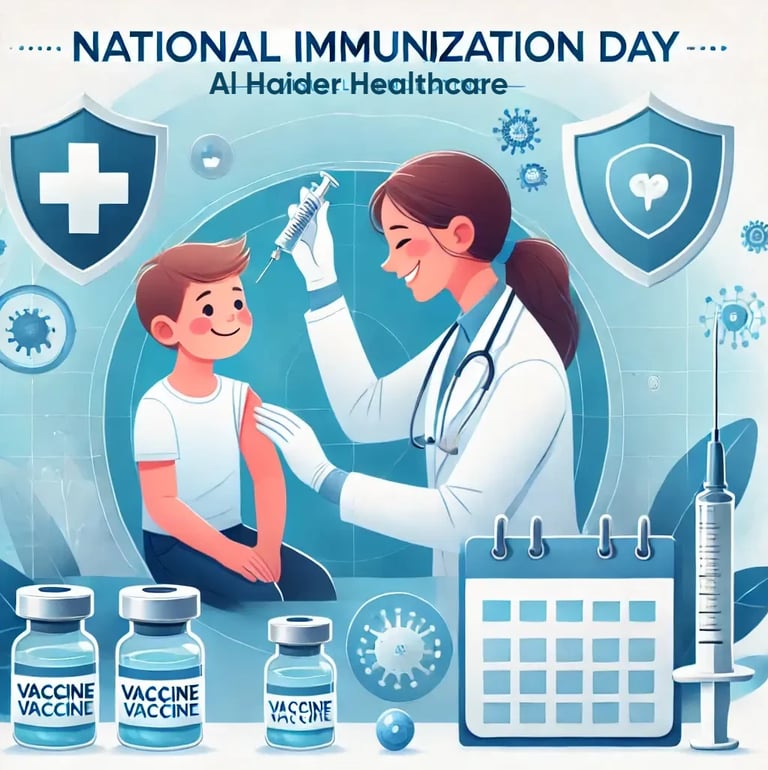

When Is Vaccination Required?
Vaccinations are administered throughout different stages of life, starting from infancy to adulthood, to ensure continuous protection against various diseases:
Infants and Children: Early childhood vaccinations protect against diseases like measles, mumps, rubella, polio, and whooping cough.
Adolescents: Booster shots and vaccines like the human papillomavirus (HPV) vaccine are recommended during teenage years.
Adults: Vaccinations such as the annual influenza shot, tetanus boosters, and vaccines for shingles or pneumococcal diseases are advised.
Special Circumstances: Certain vaccines are recommended for individuals traveling to specific regions, healthcare workers, or those with particular health conditions.
The Ministry of Health and Family Welfare (MoHFW) in India provides detailed immunization schedules to guide timely vaccinations.
Types of Vaccines
Vaccines are formulated using different methodologies to safely introduce antigens and elicit immune responses:
Live-Attenuated Vaccines: Contain a weakened form of the pathogen. Examples include the measles, mumps, and rubella (MMR) vaccine.
Inactivated Vaccines: Utilize pathogens that have been killed. The polio vaccine is a notable example.
Subunit, Recombinant, Polysaccharide, and Conjugate Vaccines: Include specific parts of the pathogen—like proteins or sugars—to provoke a strong immune response. The HPV and hepatitis B vaccines fall into this category.
Toxoid Vaccines: Target harmful substances produced by the pathogen, creating immunity to the parts of the germ that cause disease rather than the germ itself. The diphtheria and tetanus vaccines are examples.
The Evolution of Vaccines: Invention and Improvement
The journey of vaccines dates back centuries and has evolved significantly:
18th Century: In 1796, Edward Jenner developed the first successful smallpox vaccine using material from cowpox lesions, laying the foundation for modern immunology.
19th Century: Louis Pasteur advanced the field by creating vaccines for rabies and anthrax, introducing the concept of attenuated vaccines.
20th Century: This era witnessed the development of vaccines for diseases like polio, measles, and influenza. The global smallpox eradication campaign, culminating in 1980, showcased the profound impact of widespread immunization.
21st Century: The advent of mRNA technology has revolutionized vaccine development, leading to rapid responses to emerging diseases, exemplified by the COVID-19 vaccines.
Continuous research and technological advancements have enhanced vaccine safety, efficacy, and accessibility, making them a cornerstone of preventive medicine.
Conclusion
National Immunization Day underscores the vital importance of vaccines in preventing diseases and safeguarding public health. At Al Haider Healthcare, we are committed to promoting immunization and providing accurate information to our community. We encourage individuals to adhere to recommended vaccination schedules and consult healthcare professionals for personalized advice. Together, through informed decisions and proactive healthcare measures, we can ensure a healthier future for all.
At Al Haider Healthcare, we recognize the critical role that immunization plays in protecting individuals and communities from infectious diseases. National Immunization Day serves as a pivotal reminder of the importance of vaccines in maintaining public health. This comprehensive overview delves into the significance of vaccination, the appropriate timing for immunizations, the various types of vaccines available, and the evolution of vaccine development.
The Importance of Vaccination
Vaccination is one of the most effective public health interventions, preventing millions of deaths annually. By stimulating the immune system to recognize and combat pathogens, vaccines provide immunity without the individual having to endure the actual diseases. The World Health Organization (WHO) emphasizes that immunization prevents illnesses, disabilities, and deaths from vaccine-preventable diseases such as cervical cancer, diphtheria, hepatitis B, measles, mumps, pertussis, pneumonia, polio, rotavirus diarrhea, rubella, and tetanus.
